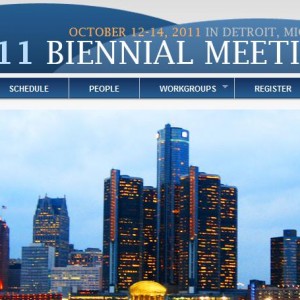Federal Water Tap, October 24: Shale Gas and the Power of Water
Wastewater Standards
The U.S. Environmental Protection Agency announced a schedule for regulating wastewater from shale gas drilling and from coalbed methane extraction. The agency will publish draft rules for public comment in 2013 for coalbed methane and in 2014 for shale gas. The longer timetable for shale gas owes to the greater amount of data that needs to be collected.
Shale Gas Hearing
On October 20, a Senate Energy and Natural Resources subcommittee held a hearing on shale gas drilling in the eastern United States. The EPA’s director of the office of groundwater and drinking water reported on the agency’s scientific studies and regulatory actions pertaining to wastewater. The executive director of the Susquehanna River Basin Commission discussed the regulatory changes his commission has made for fracking-water withdrawals.
Shale Gas Meeting
On October 31 and November 1 in Washington, D.C., a Department of Energy subcommittee will hold a public meeting to discuss recommendations for protecting drinking water from contamination by natural gas drilling. An interim report from the subcommittee urged that companies be required to publicly disclose the chemicals they pump into the ground. To attend either meeting, reservations must be received by October 27. RSVP to shalegas@hq.doe.gov. More information can be found here.
Shale Gas Data
With the help of a $750,000 National Science Foundation grant, Penn State University researchers are developing a database to track the effects on water quality of natural gas drilling in the Marcellus Shale, a gas-bearing rock formation in the eastern United States.
Flood Hearing
The full Senate Committee on Environment and Public Works discussed the year’s three major floods—the Mississippi flood, the Missouri flood, and the tropical storm floods in the northeast. The committee is beginning work on the next Water Resources Development Act, the legislation that sets priorities for the water control programs run by the Army Corps of Engineers.
At the hearing, Senators Kent Conrad (D-N.D.), Pat Roberts (R-Kan.), and Chuck Grassley (R-Iowa) said that the Corps operations manual for the Missouri River should be revised to put more emphasis on flood control, as opposed to irrigation, commerce, recreation and municipal water supply. Democrat Max Baucus from upstream Montana urged everyone to be cautious with any changes lest the reservoir in his state be drained.
Hoover Power
On October 18, legislation that apportions the electricity produced at Hoover Dam passed the Senate after passing the House two weeks earlier. The Hoover Power Allocation Act amends an act passed in 1984 and extends the federally-mandated energy allotments through 2067. Power from the dam goes to customers in Arizona, California and Nevada. The act creates a pool of power that will be available to new customers—including Indian tribes—who were not granted a share by the previous legislation.
Invasive Species
A bill that would exempt the ballast water in tanker ships from the provisions of the Clean Water Act is drawing the ire of environmental groups, who fear the legislation would open the Great Lakes to more invasive species. McClatchy-Tribune News Service reports that the EPA is set to release new ballast water regulations next month, but the House bill, which was reported out of committee, would prevent the agency from requiring rules stronger than industry-friendly international standards.
Global Waters
The U.S. Agency for International Development has turned its bi-monthly water newsletter into a bulkier magazine. Global Waters is now a quarterly publication, and the October edition delivers agency-produced articles on its work in the Horn of Africa, in Tajikistan, and with Israelis, Jordanians and Palestinians over the Jordan River.
Federal Water Tap is a weekly digest spotting trends in U.S. government water policy. To get more water news, follow Circle of Blue on Twitter and sign up for our newsletter.
Brett writes about agriculture, energy, infrastructure, and the politics and economics of water in the United States. He also writes the Federal Water Tap, Circle of Blue’s weekly digest of U.S. government water news. He is the winner of two Society of Environmental Journalists reporting awards, one of the top honors in American environmental journalism: first place for explanatory reporting for a series on septic system pollution in the United States(2016) and third place for beat reporting in a small market (2014). He received the Sierra Club’s Distinguished Service Award in 2018. Brett lives in Seattle, where he hikes the mountains and bakes pies. Contact Brett Walton




Regulating wastewater from shale gas is a logical step. This had to be done like in the Alberta Oil Sands.